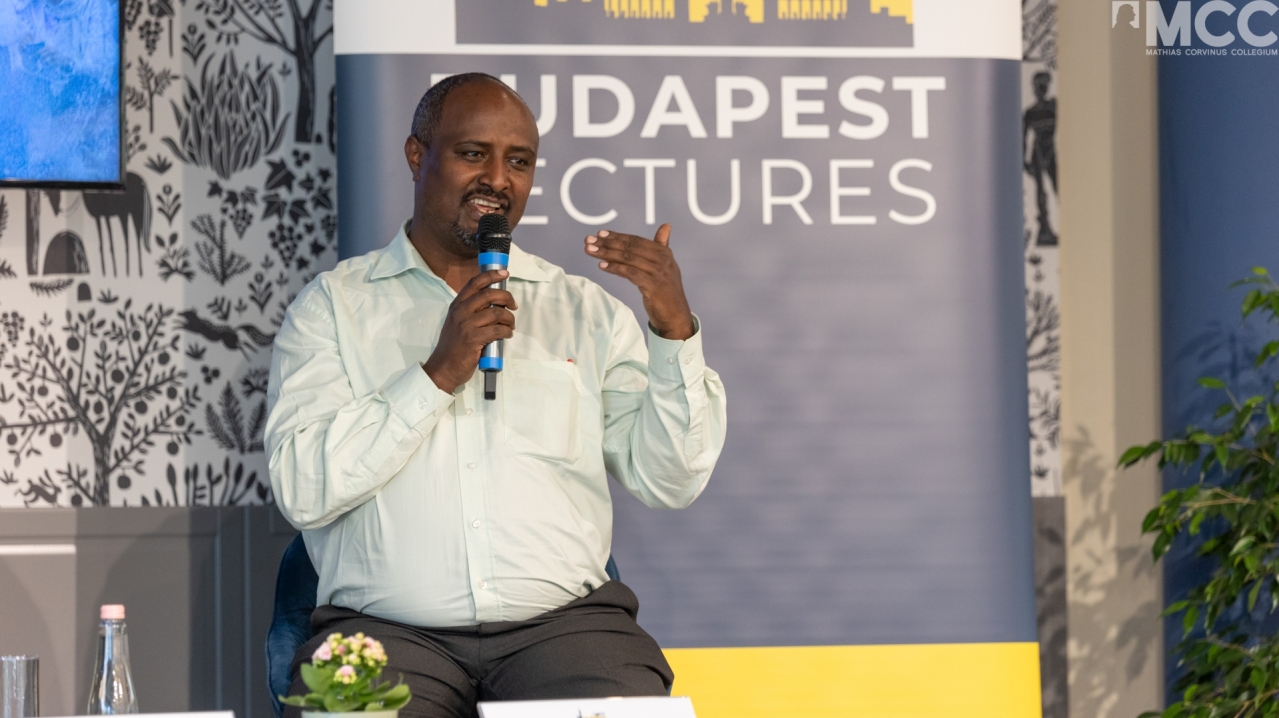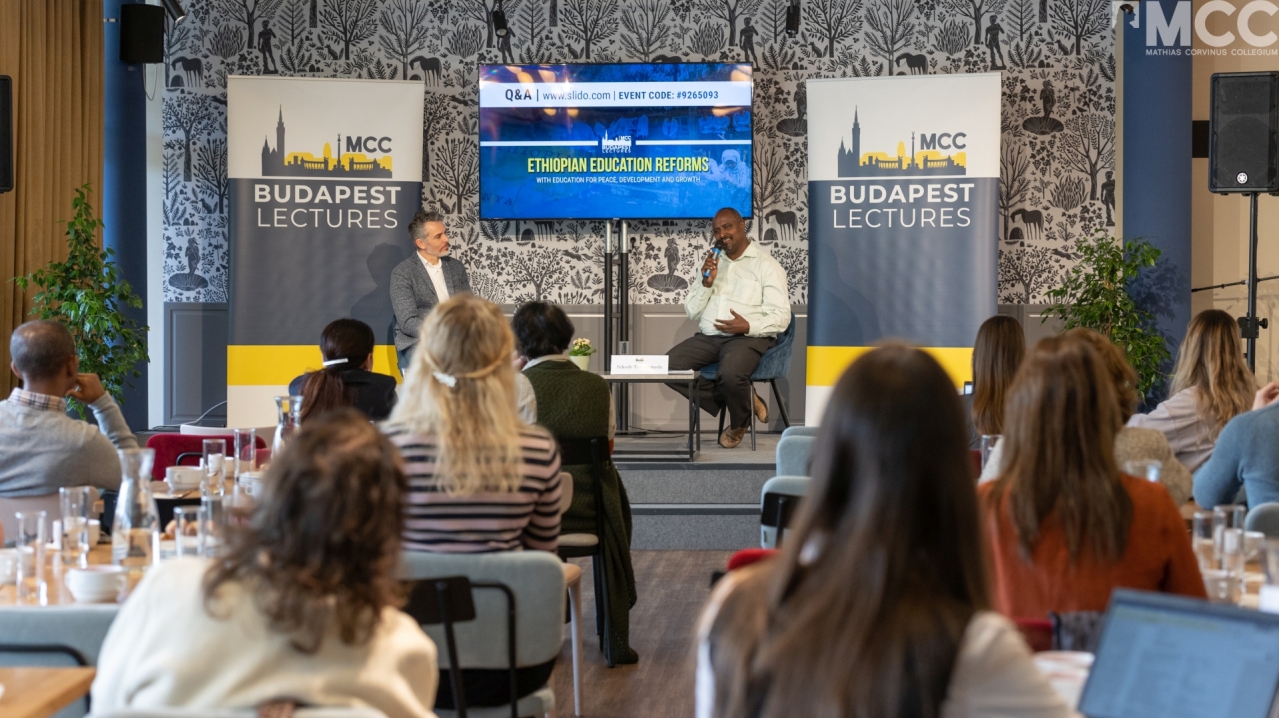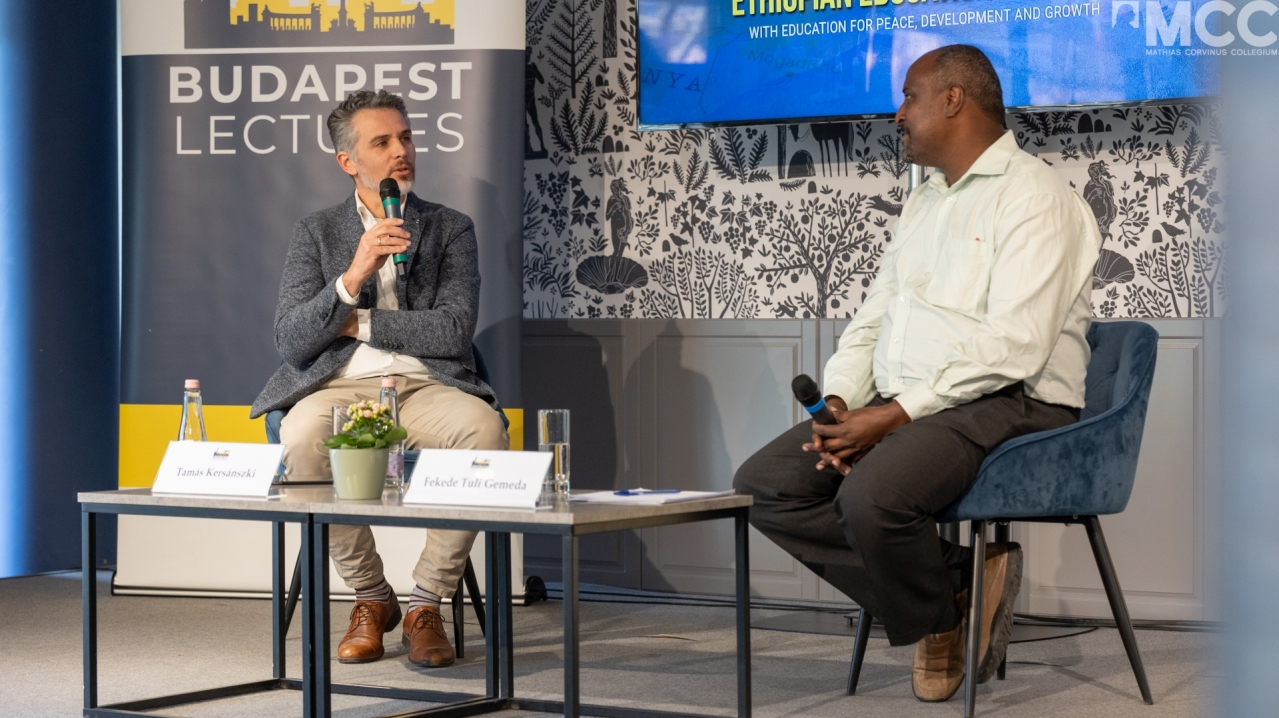Reading time: 4 minutes
Where is Ethiopia placed in the ranking of countries on the African continent and what role does it play? Dr. Fekede Tuli Gemeda, Vice President for Academic Affairs and Associate Professor at the Department of Teacher Education, Institute of Education and Professional Studies, Kotebe University of Education, explained at the event organized by the Learning Institute that in Africaon the exporter in Africa has the largest and most profitable airline and was building on the continent. He also said that it was a multilingual, multicultural society, with many different religions, ethnic groups and languages.
During the roundtable discussion, participants had the opportunity to learn about recent education reforms in Ethiopia and their impact on public and higher education. With regard to the Ethiopian education structure, the panellists reviewed how education responds to labour market needs, shed light on the accepted place and role of Ethiopian education on the African continent, and outlined its challengers and competitors. Our experts also explored how global and local challenges affect education and economic policy at macro and micro levels, and what the future holds for young people in an African country of 110 million.
Ethiopia's Diversity
In Ethiopia, there are more than 80 languages and a huge number of ethnicities, making it a truly diverse country. In the education system, a lingua franca is used: communication in English makes it easier for students to understand each other. In addition, in order to foster human relations, all ethnic festivals in Ethiopia are held to provide an opportunity for different ethnic groups to meet. Moreover, ethnic and cultural elements are also included in the curriculum, so that students can get to know each other's culture, language and religion," explained Dr Fekede Tuli Gemeda.
Education Reforms in Ethiopia
Dr. Fekede Tuli Gemeda said, "Ethiopia is the second most populous country in Africa and the majority of the population is young, so the government has a really difficult task in meeting the needs of the emerging generation. There is an ongoing reform of education, and one reason for this is that the curriculum does not meet the needs of the labour market, as technology, society and politics are changing on a large scale. And people are looking for the educational and development opportunities that suit them best. These elements all affect education in Ethiopia and have an impact on reforms. Professor Gemeda added that they aim to ensure that their graduates are able to compete not only in the local labour market but also in international markets.
A change of mindset is also needed in Ethiopia: it is essential that young people not only aim to find a job but also have an entrepreneurial mindset and a creative, innovative way of thinking, as this is one of the keys to be able to create jobs in the market," said Dr Fekede Tuli Gemeda
Another major problem is that students are being adjusted to the system, instead of the system being adjusted to the students. It is only in the latter case that young people would really be able to unlock their potential to be more innovative and creative. Furthermore, teacher training itself does not meet 21st-century expectations and more emphasis should be placed on keeping up with technological changes. If there are no changes in this area, there will be a huge gap between the two generations, teachers and students," he said.
According to the professor, it is not enough to have a sound knowledge base to succeed in the labour market, it is also important to develop applicable skills - which is why the government plans to set up more skills development centres and vocational schools to ensure young people receive the right training. Furthermore, retraining is an important pillar of education, which everyone needs/will need, as we live in a rapidly changing world and we need to adapt to the challenges of the 21st century.
Dr Fekede Tuli Gemeda, Vice President for Academic Affairs and Associate Professor at the Department of Teacher Education, Institute of Education and Professional Studies, Kotebe University of Education, has more than 15 years of experience in managing academic programmes in various higher education institutions. His research interests include teacher education, action research, professional learning and educational reform. He has actively collaborated with researchers in a wide range of educational fields, both at national and international levels.
Dr Fekede Tuli Gemeda also spoke about the conflict in northern Ethiopia that has had a devastating impact on the education system: many schools have been closed, destroyed, and looted. After a long period of crisis, the situation is now beginning to improve. The government intends to rebuild the destroyed educational institutions and relaunch services in the region. The professor also noted that more than 1000 students and teachers have lost their lives in this war.





